|
By Llewellyn H. Rockwell Jr.
Ludwig von Mises didn’t like references to the "miracle" of the marketplace or the "magic" of production or other terms that suggest that economic systems depend on some force that is beyond human comprehension. In his view, we are better off coming to a rational understanding of why markets are responsible for astounding levels of productivity that can support exponential increases in population and ever higher living standards. There was no German miracle after World War II, he used to say; the glorious recovery was a result of economic logic working itself out through market forces. Once we understand the relationship between property rights, market prices, the time structure of production, and the division of labor, the mystery evaporates and we observe the science of human action making great things happen. He is right that understanding economics does not require faith, but there are actions undertaken by market actors themselves that require faith (and Mises would not disagree with this)—immense faith, faith that moves mountains and raises up civilizations. If we accept the interesting description of faith by St. Paul ("evidence of things unseen") we can understand entrepreneurship and capitalist investment as acts of faith. Everyone who is in business understands this. It requires a thousand daily acts of seeing the unseen future to be in business. The reality of the marketplace is that the consuming public can shut you down tomorrow. All they need to do is to fail to show up and buy. This is true for the smallest business to the largest. There is no certainty in any business. Nothing is a sure thing. Every business in a market economy is only a short step from bankruptcy. No business possesses the power to make people buy what they do not want. All success is potentially fleeting. Success does yield a profit, but that provides no comfort. Every bit of profit you take for yourself comes out of what might otherwise be an investment in the development of the business. But neither is this investment a sure thing. Today’s smash hit could be tomorrow’s flop. What you perceive to be a solid investment could turn out to be a short-term craze. What you see, based on past sales, as having a potential mass appeal could actually be a market segment that was quickly saturated. Emperors can rest on their laurels but capitalists never can. Sales history provides nothing but a look backwards. The future is never seen with clarity but only through a glass, darkly. Past performance is not only not a guarantee of future success; it is no more or less than a data set of history that can tell us nothing about the future. If the future turns out to look like the past, the probabilities still do not change, any more than the probability of the next coin toss landing on heads increases because it happened previously five times in a row. Despite the utter absence of a road map, the entrepreneur-investor must act as if some future is mapped out. He or she must still hire employees and pay them long before the products of their labor come to market, and even longer before those marketable products are sold and turn a profit. The equipment must be purchased, upgraded, serviced, and replaced, which means that the entrepreneur must think about today’s costs and tomorrow’s and the next day’s saecula saeculorum. Especially now, the costs can be mind boggling. A retailer must consider an amazing array of options concerning suppliers and web services. There must be some means of alerting the world to your existence, and despite a century of attempts to employ scientific methods for finding out what makes the consumer tick, advertising remains high art, not positive science. But it is also art with high expense. Are you throwing money down a rathole or really getting the message out? There is no way to know in advance. The heck of it too is that there are no testable causes of success because there is no way to perfectly control for all important factors. Sometimes not even the most successful business is clued into what it is, precisely, what makes its products sell more as compared with its competitors. Is it price, quality, status, geography, promotion, psychological associations people make with the product, or what? Back into the 1980s, for example, Coca Cola decided to change its formula and advertise it as New Coke. The result was a catastrophe as consumers fled, even though the taste tests said that people liked the new better than the old. If the historical data are so difficult to interpret, think how much more difficult it is to discern probable outcomes in the future. You can hire accountants, marketing agencies, financial wizards, and designers. They are technicians, but there are no such things as reliable experts in overcoming uncertainty. An analogy might be a man in a pitch black room who hires people to help him put one foot in front of the other. His steps can be steady and sure but neither he nor his helpers can know for sure what is in front of him. "What distinguishes the successful entrepreneur and promoter from other people," writes Mises, "is precisely the fact that he does not let himself be guided by what was and is, but arranges his affairs on the ground of his opinion about the future. He sees the past and the present as other people do; but he judges the future in a different way." It is for this reason that entrepreneurial habit of mind cannot be implanted through training or education. It is something possessed and cultivated by an individual. There are no entrepreneurial committees, much less entrepreneurial planning boards. The inability of governments to engage in the entrepreneurial act of faith is one of many reasons why socialism cannot work. Even if a bureaucrat can look at history and claim that his agency could have made a car, dry wall, or a microchip, that same person is at a loss to figure out how innovations in the future can take place. His only guide is technology: he can speculate about what might work better than what is presently available. But that is not the economic issue: the real issue concerns what is the best means given all the alternative uses of resources to satisfy the most urgent wants of consumers in light of an infinity of possible wants. This is impossible for governments to do. There are thousands of reasons why entrepreneurship should never take place but only one good one for why it does: these individuals have superior speculative judgment and are willing to take the leap of faith that is required to test their speculation against the facts of an uncertain future. And yet it is this leap of faith that drives forward our standards of living and improves life for millions and billions of people. We are surrounded by faith. Growing economies are infused with it. Mises forgive me: this is a miracle. [Originally published as "The Faith of Entrepreneurs" in The Free Market 26, no. 12 (December 2005)] via Mises.org
The third "battle for Fallujah" is currently raging, pitting Iraqi government forces and Iran-backed Shia militias against ISIS. The US says it wants ISIS defeated but it doesn't want the Iranians to come out with more influence. Who will win, who will lose, and when can we finally come home?
By Ron Paul
Three recent stories regarding three government agencies — the IRS, the Transportation Security Administration (TSA), and the Department of Veterans Affairs (VA) — show why we should oppose big government for practical, as well as philosophical, reasons. In recent months, many Americans have missed their flights because of longer-than-usual TSA security lines. In typical DC fashion, the TSA claims the delays are because of budget cuts, even though Congress regularly increases the TSA’s funding! The TSA is also blaming the delays on the fact that few Americans have signed up for its “PreCheck” program. Under PreCheck, the TSA considers excusing some Americans from some of the screening process. Those who wish to be considered must first submit personal information to the TSA and pay a fee. Only a bureaucrat would think Americans would be eager to give the TSA more information and money on the chance that they may be approved for PreCheck. The TSA is much better at harassing airline passengers than at providing security. TSA agents regularly fail to catch weapons hidden by federal agents testing the screening process. Sadly, Congress will likely reward the TSA's failures with continued funding increases. Rewarding the TSA’s incompetence shouldn’t surprise us since the TSA owes its existence to the failure of government to protect airline passengers on 9/11. If Congress truly wanted to protect airline passengers, it would shut down the TSA and let airlines determine how best to protect their passengers. Private businesses have a greater incentive than government bureaucrats to protect their customers and their property without stripping their customers of their dignity. The head of the VA also made headlines last week when he said it is unfair to judge the VA by how long veterans have to wait for medical care, since no one judges Disney World by how long people have to wait in line. Perhaps he is unaware that no one has ever died because he waited too long to go on an amusement park ride. For years socialized medicine supporters pointed to the VA as proof that a government bureaucracy could deliver quality health care. The stories of veterans being denied care or receiving substandard care demolish those claims. If Congress truly wanted to ensure that veterans receive quality health care, it would stop forcing veterans to seek health care from a federal bureaucracy. Instead, government would give veterans health-care vouchers or health savings accounts and allow them to manage their own health care. Congress should also dramatically reduce the costs of providing veterans care by ending our militaristic foreign policy. Another story last week highlights the one thing government does do well: violate our rights. The House Judiciary Committee held a hearing on impeaching IRS Commissioner John Koskinen over his role in the IRS's persecution of conservative organizations. Those who value liberty and constitutional government should support impeaching Koskinen. However, truly protecting Americans from IRS tyranny requires eliminating the income tax. Despite the claims of some, a flat tax system would still require a federal bureaucracy to ensure Americans are accurately reporting their income. Since the income tax is one of the foundations of the welfare-warfare state, it is folly to think we can eliminate the income tax without first dramatically reducing the size and scope of government. The TSA, VA, and IRS are just three examples of how government cannot effectively provide any good or service except authoritarianism. Individuals acting in the free market are more than capable of providing for their own needs, including the need to protect themselves, their families, and their property, if the government gets out of the way.
By Chris Rossini
Government "help" always produces blowback. When government force is used to supposedly benefit "workers," employers adapt. It's during that adaptation process that the government "help" inevitably turns into government "hurt". The "Fight for 15" thing has caused fast-food restaurants to rapidly automate. From McDonalds to Wendy's (who is putting kiosks in all 6,000 restaurants), those who thought the government would use the threat of violence to "help" them are not going to get $15/hr. They're going to get zero instead. Pink slips instead of an unjustified raise. It's not stopping at fast-food either. Other companies can see which way the wind is blowing as well, so they're getting out ahead of it. Breitbart reports: Whole Foods may still be seen by shoppers as an alternative to corporate grocery chains, but the highly-profitable corporation just opened its first “365 by Whole Foods” in Los Angeles in an effort to use kiosks and robots to cut 60 percent of staffing costs and maximize profitability. [...]
See that? Employers don't want to be "the hunted".
Who would? Americans need to think first before showing up to their employer with "Daddy" government by their side. The employer will kick the both of you out! Government doesn't "help"...It only hurts.
By Robert Wenzel
Socialist Bernie Sanders refused to talk about the collapsing economies of South American socialist countries, when confronted by the heroic Leon Krauze of Univision. Why aren't U.S. reporters asking Bernie questions like this? This article was originally published at EconomicPolicyJournal.com
The word "fascism" actually has a real meaning. The left misuses the word on a regular basis. They shout it as a slur against anyone they don't happen to like. But the notorious Italian fascist Benito Mussolini summed up the word's essence when he said: "Fascism should more properly be called corporatism, since it is the merger of state and corporate power." Does that definition along with the current state of the world arouse any curiosity? Ron Paul tackles fascism on today's Myth-Busters. Don't miss it!
By Chris Rossini
People can cry for government intervention, but they can't escape the inevitable (and disastrous) results. Reuters reports an astounding statistic on the damage that the TSA causes to American lives. Airport screening delays have caused more than 70,000 American Airlines (AAL.O) customers and 40,000 checked bags to miss their flights this year, an executive for the airline told a U.S. congressional subcommittee on Thursday.
Several times this week, Ron Paul has been on Fox Business to offer the proper solution to this needless agony and waste.
It won't be fixed by crony "privatization," where a government-favored corporation takes over all airport security. One-size-fits-all whether instituted by government, or one of its crony friends won't work. Instead, private property should reign supreme. Each airline is responsible for its own business and has a vested interest in making sure that their customers are happy and satisfied. No airline wants damage to occur to its planes, employees or customers. Each airline should then logically be responsible over the task of balancing security and customer satisfaction. They should compete with one another to find out what that is balance is. Profits and losses will clearly show what consumers want. The TSA has no incentive to make anyone happy (other than their oversized egos). It's just another government run cookie-cutter solution. No one should be surprised by the results. Whether it's the VA hospitals, government schools, government roads, government money, or anything else that government monopolizes, when the cookie-cutters come in, human misery must follow. TSA has proven to provide nothing but security theatre. Watch Dr. Paul go into details on Fox Business below:
Legendary bond billionaire Bill Gross has shifted from bullish to bearish on bonds, warning that the days of central bank dominance are nearly over. Is the financial day of reckoning coming faster than we think?
By Tyler Durden As Bloomberg's Nathan Crooks demonstrates, this is the maximum amount of money one can take out from a Venezuela ATM each day. For those wondering, the fistful of cash is worth about $25. The good news: those locals lucky enough to still have money in a Venezuela bank don't need a wheelbarrow to carry it. The bad news: those same locals soon will. This article was originally published at ZeroHedge. |
Archives
July 2024
|

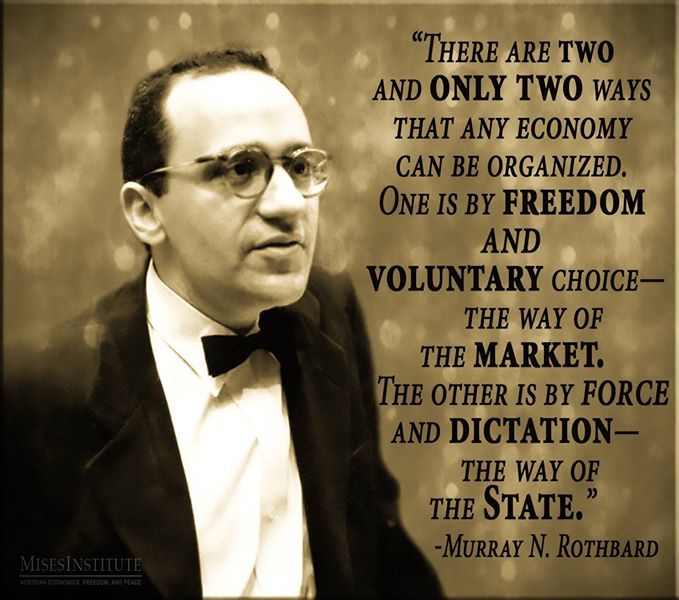

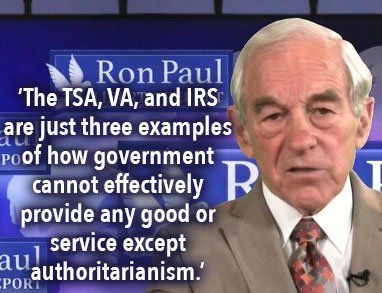

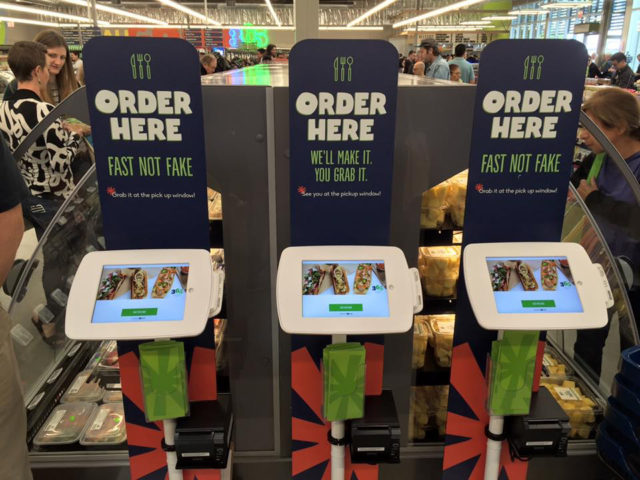

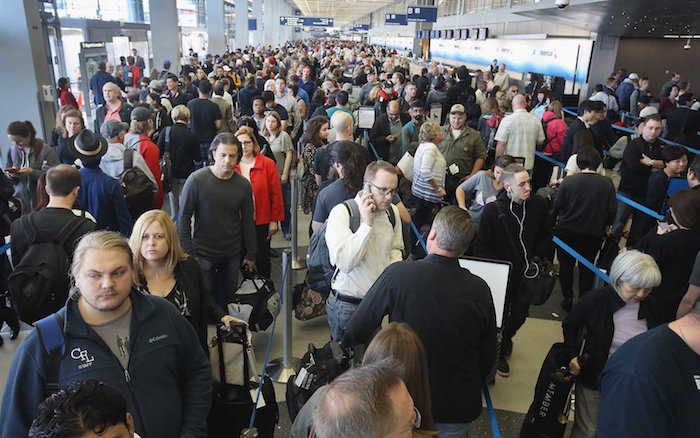


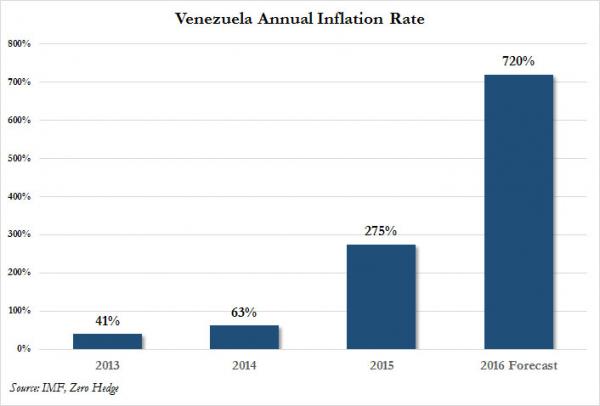

 RSS Feed
RSS Feed



